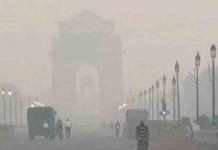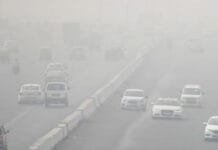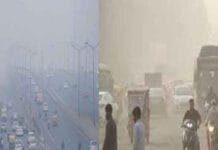The heat wave sweeping across India has brought unprecedented temperature levels, with Nagpur recording a staggering 56 degrees Celsius. However, the regional meteorological department clarified that this extreme temperature was due to a sensor malfunction. Such anomalies, experts suggest, can occur due to various reasons, including the equipment’s calibration and maintenance conditions.
Sensor Malfunction Explained
The regional meteorological department issued a statement explaining, “Automated systems can give wrong readings due to various factors such as site conditions, sensor malfunction.” Experts in the field have indicated that improper calibration and the condition in which the sensors are kept can significantly affect the readings.
Director General M Mahapatra of the Meteorological Department noted, “Some of our scientists are saying that automatic sensors can get damaged due to high temperature. We are looking into all aspects of these records and machines.”
Impact of Extreme Heat on Equipment
Mahesh Palawat, Vice President of Climate and Meteorology at Skymet Weather, emphasized, “If the automatic weather station is not calibrated for extreme temperature ranges, it can give wrong readings.” The equipment’s resilience and accuracy in extreme conditions are crucial for reliable data.
Record Temperatures in Delhi
While Nagpur’s readings are under scrutiny, a regional meteorological center in Delhi recorded a temperature of 52.3 degrees Celsius. The Meteorological Department is in the process of confirming these readings, as such high temperatures can also be the result of equipment failure.
Widespread Heat Wave Across North and Central India
Severe heat wave conditions persisted in many parts of North and Central India on Friday, with maximum temperatures soaring to 47-48 degrees Celsius in numerous areas. The heat wave has triggered an orange alert for North-West, Central, and East India on June 1.
In Ayanagar, Delhi, the temperature reached 47 degrees Celsius on Friday. Similarly, other areas recorded extreme temperatures:
- Kanpur IAF reported 48.2 degrees Celsius
- Bathinda Airport saw temperatures of 47.6 degrees Celsius
- Titlagarh, Odisha recorded 46.5 degrees Celsius
- Sirsa, Haryana experienced 47.8 degrees Celsius
Health and Safety Concerns
The extreme heat poses significant health risks, prompting authorities to issue advisories for public safety. Hydration and avoiding outdoor activities during peak heat hours are critical preventive measures.
Preventive Measures and Public Advisory
We urge citizens to take the following precautions during this intense heat wave:
- Stay Hydrated: Drink plenty of water and avoid caffeinated or alcoholic beverages.
- Limit Outdoor Activities: Avoid going out during peak heat hours, typically from 12 PM to 4 PM.
- Wear Light Clothing: Dress in lightweight, loose-fitting, and light-colored clothes.
- Use Sun Protection: Apply sunscreen, wear hats, and use umbrellas to protect against direct sunlight.
- Stay Informed: Keep up-to-date with local weather forecasts and heat advisories.
Climate Change and Rising Temperatures
This extreme weather event highlights the broader issue of climate change and its impact on global temperatures. The frequency and intensity of heat waves have increased, posing challenges for infrastructure, agriculture, and public health.
Global Warming’s Role
Scientific studies link the rise in global temperatures to human activities, primarily the emission of greenhouse gases. This leads to more frequent and severe heat waves, affecting not just India but countries worldwide.
Adaptive Measures for Future
To mitigate the effects of such extreme weather, it is essential to adopt both immediate and long-term strategies:
- Improving Infrastructure: Enhance the resilience of buildings and public spaces to withstand extreme heat.
- Urban Planning: Develop green spaces and increase vegetation in urban areas to reduce the heat island effect.
- Sustainable Practices: Encourage the use of renewable energy sources and reduce carbon footprints.
- Public Awareness: Increase awareness about climate change and promote sustainable living practices.
The recent heat wave, with temperatures allegedly reaching 56 degrees Celsius in Nagpur, serves as a stark reminder of the pressing issue of climate change and the urgent need for effective mitigation and adaptation strategies. While sensor malfunctions might explain some of these extreme readings, the underlying trend of rising temperatures is undeniable and requires immediate attention and action.
As we continue to face the challenges of a warming planet, it is crucial to stay informed, adopt preventive measures, and work collectively towards a sustainable future. The health and safety of the population depend on our ability to respond effectively to these extreme weather events.















